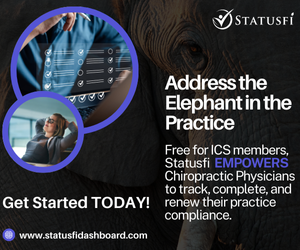
Electronic Health Records (EHR) Updates

The ICS regularly receives questions regarding the incentive program for electronic health records, meaningful use, certified software, and attestation. From time to time, we have held seminars and webinars to walk through many of the perceived “obstacles” to success when implementing new software and attestation. Below you will find some general answers and clarifications to several questions surrounding EHR.
Which Software Should I Purchase?
This is the most common question we field here at the ICS. We do not believe that there is a panacea. Instead, we believe that providers should carefully review several products as they relate to his or her specific practice. Every office is different.
The first step that we recommend is making a list of things you want your software package to include. It is very important to include your staff in this process by making a list of their own.
The list should have three important sections:
- Section One – List the things that neither you nor your practice would survive without. In short, if the software couldn’t do these things, then your practice would not survive.
- Section Two – List the things that you believe are very important to your practice. These would be your perceived needs of the software.
- Section Three – List the things that would be great to have. List items in this section that would help make your office or you more efficient. Some of these items would be “features” of some packages but not others.
The second step that we recommend is to begin to talk to software vendors with software that is certified. Compare the information from each software package to the list that you previously developed. Do not be afraid to add more items to your list as you meet with software vendors. Make sure that you ask about upfront costs (sometimes referred to as implementation costs) and ongoing maintenance (annual fees), and ensure these align with your budgetary constraints.
The final step is to choose the software that best fits your office. Careful completion of the previous two steps makes this step the easiest. Establish a timeframe with the vendor for implementation, and begin.
Do the Sequestration Reductions Apply to Incentive Payments?
For all reporting periods that end after April 1, 2013, the incentive payments will be reduced by 2%. Thus, if 2013 is your first year of attestation and you use the first 90 days of the year as your 90-day attestation period, your payments would not be subject to the 2%. However, all other incentive payments for 2013 will be subject to the 2% reduction. Thus, if 2013 is your first year to attest, your maximum payment would be $14,700 or $300 less.
Do We Have to Give Every Patient a Clinical Summary Every Visit?
The ICS previously placed several formal inquiries to CMS regarding clarification for Clinical Summaries (Measure 13, Stage 1). We made the inquiries because the language in many of their publications was ambiguous and left providers uncertain. However, CMS recently released a statement with greater clarification:
“For the EHR Incentive Programs, an office visit includes separate, billable encounters that result from evaluation and management services provided to the patient. While CMS does not specify a range of E&M billing codes to which this exclusion applies, we define office visits as:
- Concurrent care or transfer of care visits
- Consultant visits*, or
- Prolonged Physician Service without Direct (Face-To-Face) Patient Contact (telehealth).
*A consultant visit occurs when a provider is asked to render an expert opinion/service for a specific condition or problem by a referring provider. If you do not have any visits that fit into the three categories above, you may claim the exclusion for this objective.”
This clarification is welcome news to providers who are beginning and who continue to work towards meaningful use of certified software. The language above indicates that NOT every visit is an “office visit.” Unlike the language contained in previous CMS releases indicated (see “Providing Patients in Ambulatory Care Settings with a Clinical Summary of the Office Visit” – November 2012 – HealthIT.gov), now only the office visits as indicated in those three areas will require a Clinical Summary.
Here is a link to the full release (see page 2): Meaningful Use Specialists Tipsheet (Jan 2013)
How should I answer the Clinical Quality Measures (CQM) question during attestation?
The question asked during attestation regarding Clinical Quality Measures (CQM) is a bit ambiguous. It reads, “Are you planning to participate in the Physician Quality Reporting System-Medicare EHR Incentive Pilot for 2012 [or 2013]?” The ambiguity arises from our doctors who are participating in PQRI and in the EHR incentive plan.
The question gives more information by saying, “If you selected yes, you will need to electronically submit your clinical quality measures and you will NOT be able to attest CQM result.” As a result, the currently preferred method for reporting CQM should be through attestation and not the pilot program.
Those attesting should answer this question “No.”
If you are compelled to participate in the pilot program, the ICS strongly urges you to contact your EHR provider to find details on how to participate appropriately. Incorrect participation or incorrectly answering the question may result in losing the incentive payment for the reporting period.
ICS Members with questions should contact me at the ICS office (217-525-1200).
The ICS will be offering a series of webinars in late 2013 which will cover the overall incentive program, Stage 1 measures and requirements, Stage 2 measures and requirements (begins in 2014 for providers who attested in 2012 and before), the new 2014 certified software standards and criteria, and more. Please watch future publications for more information.



















